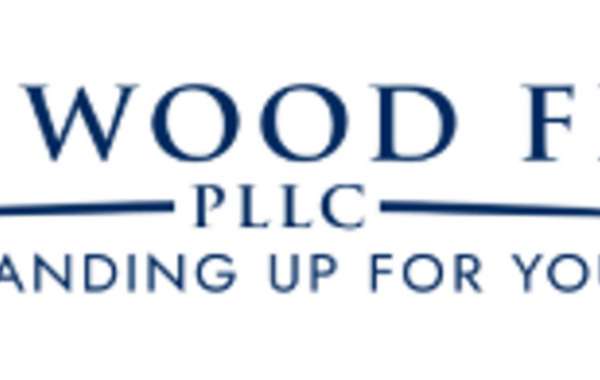Debt collection is a stressful experience for many consumers. When contact attempts escalate or feel excessive, it becomes even harder to navigate the situation with confidence. Understanding your rights, the limits on collection practices, and how to protect yourself can transform an overwhelming process into one you can manage with clarity and control. This article explores essential consumer protections, common signs of improper behavior from collectors, and steps you can take to assert your rights. After the introduction, we will address the topic of First Credit Services debt collection harassment to provide a grounded example of what many consumers encounter.
What Constitutes Debt Collection Harassment?
Debt collection harassment can take many forms. Legally, harassment is defined through the Fair Debt Collection Practices Act, which sets standards for communication, transparency, and conduct. Any collector who attempts to intimidate, deceive, or excessively pressure a consumer risks crossing into behavior that violates federal law.
Consumers should be aware that harassment does not require shouting, threats, or profanity, although those behaviors clearly violate regulations. More subtle forms of misconduct also qualify. These include repeated unnecessary phone calls, false statements about the debt, attempts to contact consumers at their workplace after being told not to, or contacting third parties about the debt except under narrowly defined circumstances.
Understanding these rules not only helps protect your peace of mind but also empowers you to take action against collectors who cross the line.
Recognizing Red Flags in Debt Collection
If you know what to look for, you can quickly determine whether a collector is operating within the boundaries of the law.
1. Excessive Call Frequency
Collectors are allowed to contact you, but they cannot ring your phone repeatedly to annoy or pressure you. If you receive several calls per day or frequent calls after you have already spoken with the collector that day, this is a sign of problematic behavior.
2. Aggressive or Threatening Language
Any threat of violence, legal consequences that are not true, or claims that you will be arrested are illegal. Debt collection is a civil matter. A legitimate collector knows this and will not imply otherwise.
3. Contacting You at Work
If a collector knows your employer does not allow these calls, they must stop contacting you at your workplace. Continuing to call your office after being told not to is considered a violation of your rights.
4. Discussing Your Debt with Others
Collectors cannot speak about your debt with friends, family, coworkers, or neighbors. They may only contact third parties to locate your current address or phone number, and even then must follow strict limits.
5. Misrepresentation or Dishonest Claims
Collectors may not pretend to be government officials, attorneys, or representatives of a credit bureau. They may not misstate the amount you owe or claim that legal action has already been filed if it has not.
Recognizing these red flags early helps you respond appropriately and document violations that could support future complaints or legal claims.
Your Rights Under Federal Law
Federal law offers a strong framework of protections for consumers facing collection activity. These rights apply regardless of what type of debt you owe, including credit cards, medical bills, and personal loans.
Right to Written Validation
Within five days of contacting you, the collector must send a written notice containing the amount owed, the name of the creditor, and instructions for disputing the debt.
Right to Dispute the Debt
You have 30 days to request verification. During this period, the collector must halt all collection efforts until they provide documentation proving the debt is valid.
Right to Limit Communication
You can request that collectors stop calling you altogether. Once you send a written cease communication letter, they may only contact you to confirm they will stop or to notify you of specific legal actions.
Right to Be Free from Harassment
Collectors may not intimidate, coerce, or mislead you. If they fail to follow these rules, they may be held liable for damages.
Right to Sue for Violations
If a collector breaks the law, you can take legal action. This can result in compensation for damages, attorney fees, and penalties imposed on the collector.
These rights empower you to manage communication on your terms and defend yourself against illegal conduct.
How to Protect Yourself When Dealing with Collectors
Even when a collector operates within legal boundaries, the process can feel overwhelming. Taking strategic steps early can prevent bigger problems later.
Keep Thorough Records
Save copies of letters, emails, and voicemail messages. Write down the date, time, and content of every call. This documentation becomes valuable evidence if you need to file a complaint or initiate legal action.
Request Written Communication
If frequent calls cause stress, request in writing that the collector communicate only through mail. Written communication creates a clear, traceable record of everything exchanged.
Verify the Debt
Scammers often pose as collectors. Never give personal information until you receive a written validation notice confirming the debt is legitimate and the collector is authorized to collect.
Know Your Budget
Collectors may push for immediate or large payments. Before agreeing to anything, review your financial situation and determine what you can realistically afford. Never let a collector pressure you into an agreement you cannot maintain.
Seek Professional Guidance
Credit counselors, consumer attorneys, and nonprofit financial organizations can help you understand your options. If a collector seems abusive or uncooperative, professional support may be essential.
When You Should Consider Filing a Complaint
If a collector violates your rights, filing a complaint can stop the harassment and hold the company accountable. You may file complaints with the Consumer Financial Protection Bureau, your state attorney general, or the Federal Trade Commission. These agencies track patterns of misconduct, take enforcement action when needed, and offer resources to guide consumers.
You may also consider consulting a consumer rights attorney. Many attorneys offer free consultations for debt collection cases because federal law allows them to recover attorney fees from violators.
Taking Back Control
Dealing with collectors can be emotionally draining, but you do not have to face the situation alone. By understanding your rights, recognizing warning signs, and taking proactive steps to protect yourself, you can regain control of the process and prevent unwanted stress.
If you ever feel intimidated or uncertain, remember that debt collection is a regulated activity and you have clear legal protections. The more familiar you become with those protections, the more confidently you can navigate any collection situation that arises.







